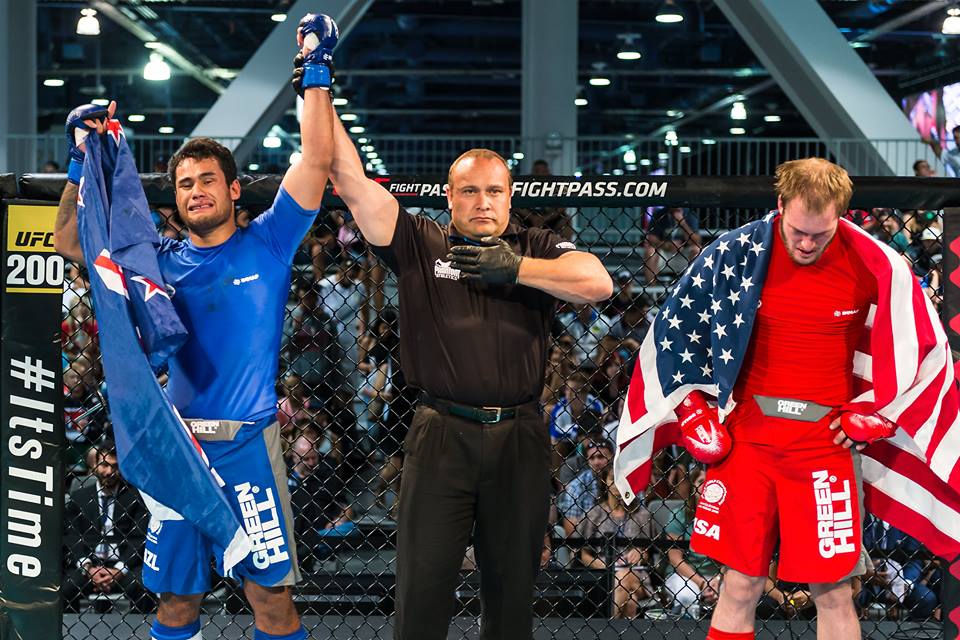Picture above: New Zealand’s Byron Chivers defeated USA representative Dallas Jennings in the 2016 IMMAF World Championships Middleweight final. Jennings subsequently failed his post-fight drug test. By IMMAF.org lead writer and website manager, Jorden Curran Yesterday IMMAF announced that an independent tribunal had found two athletes guilty of committing Anti-Doping Rule Violations at the 2016 IMMAF World Championships of Amateur MMA, at UFC International Fight Week in Las Vegas. Dallas Jennings of the USA (Silver Medallist in the Men’s Middleweight division) admitted to use of four Prohibited Substances; two Androgenic Anabolic Agents and two Hormone and Metabolic Modulators, in addition an atypical finding of a T/E ratio of 46, (the threshold T/E ratio is 4.0). A 4-year suspension stretching to 9 July 2020 was imposed on the athlete with Right of appeal to the Court of Arbitration for Sport being declined by the Jennings. In addition, Poland’s Aleksandra Rola (Silver Medallist in the Women’s Strawweight division) tested positive for canrenone and 7α-thiomethylspironolactone, metabolites of spironolactone, which are classified as S5 Diuretics and Masking Agents. Rola received a 2-year ban until midnight on 9 July 2018 with Right of appeal expiring on 24 January 2017. Following the news, IMMAF CEO Densign White spoke with IMMAF.org regarding plans to further educate amateur athletes on the stringency of anti-doping. In some cases he suggests that ignorance is likely to blame as opposed to blatant attempts at cheating, and talked about how plans are already in place to host educational seminars at the 2017 European Open in Sofia, Bulgaria, taking place from 29 March to 2 April. The IMMAF CEO stated: “In light of the recent doping violations it seems the issue may be ignorance and lack of education in some instances. If an athlete is using a substance, no matter how innocuous they believe it to be, whether it be for legitimate medicinal reasons or otherwise, the list of prohibited substances is stringent and this needs to hit home. There is no way around it and there is no margin for error. Everyone must understand that our Anti-doping policy is serious and on par with the standards of the World Anti-Doping Agency (WADA). Efforts will also be stepped up in pushing for national governing bodies under the IMMAF umbrella to provide education of their own with hopes for the appointment of national team medical officers to oversee official procedures and relay back to IMMAF. He added: “IMMAF’s Anti-doping Policy is out there for all to see. We are pushing for further education to be provided by each of IMMAF’s individual member nations and we plan for each national team to appoint a lead medical officer, to handle medicals, bloodwork, and to pursue any medical related issues. We will be hosting educational seminars on anti-doping throughout the year, beginning with the 2017 European Open in Bulgaria. “IMMAF has it’s own medical panel who are ready and able to provide help to athletes and teams who have concerns. Therapeutic Use Exemptions can be granted if applicable but only through the proper channels. If a TUE is not permitted then it’s possible we can work on identifying alternative aid.” Download the full IMMAF Anti-Doping Policy here: IMMAF Anti-Doping Rules Sporting Integrity version final 2016]]>

